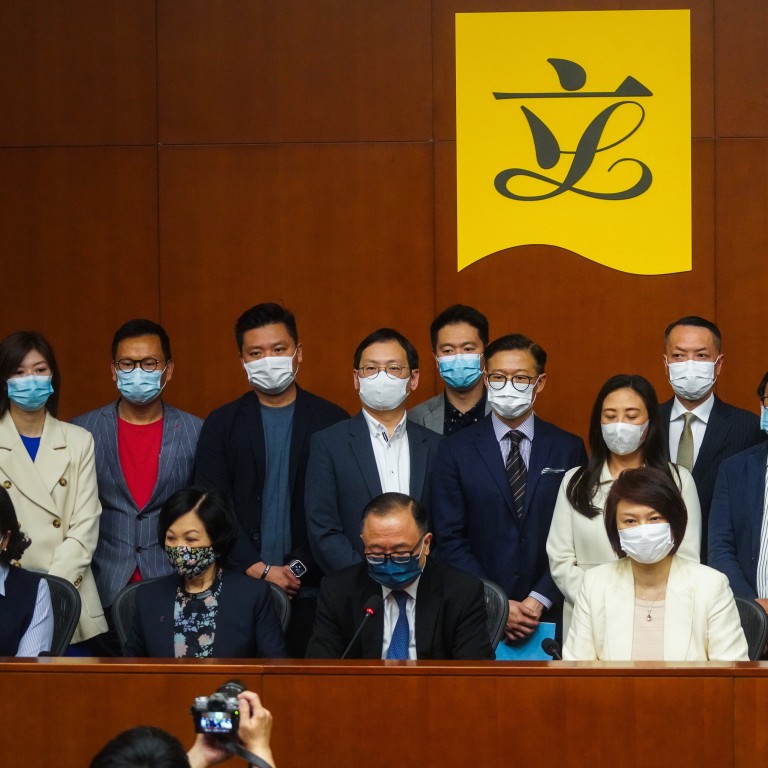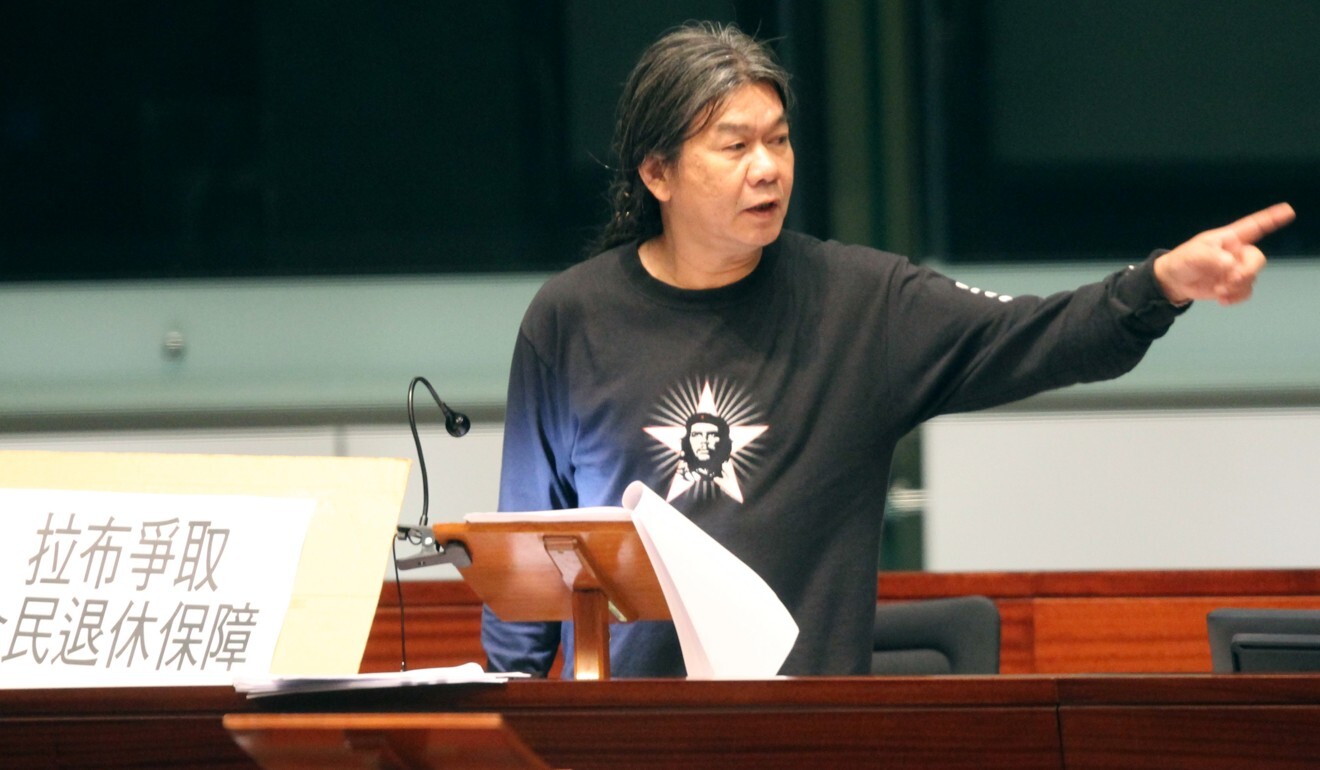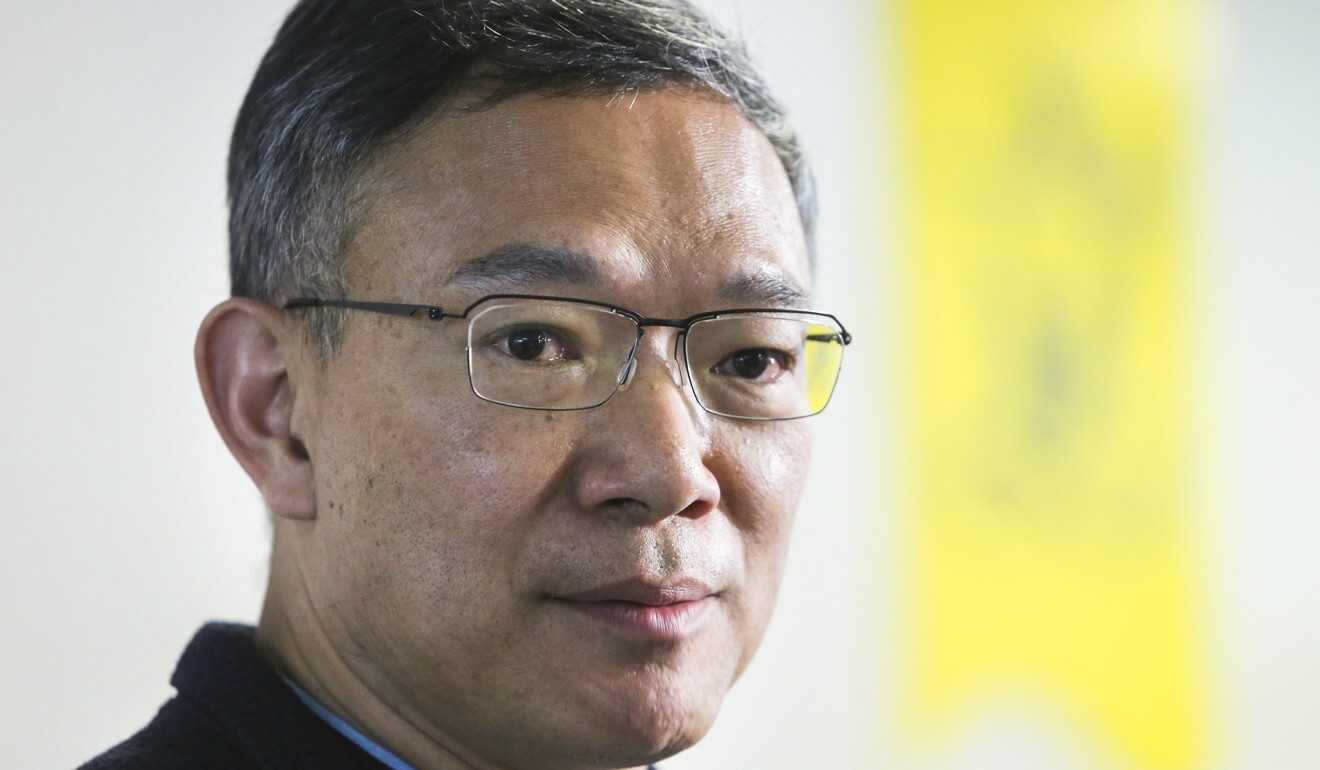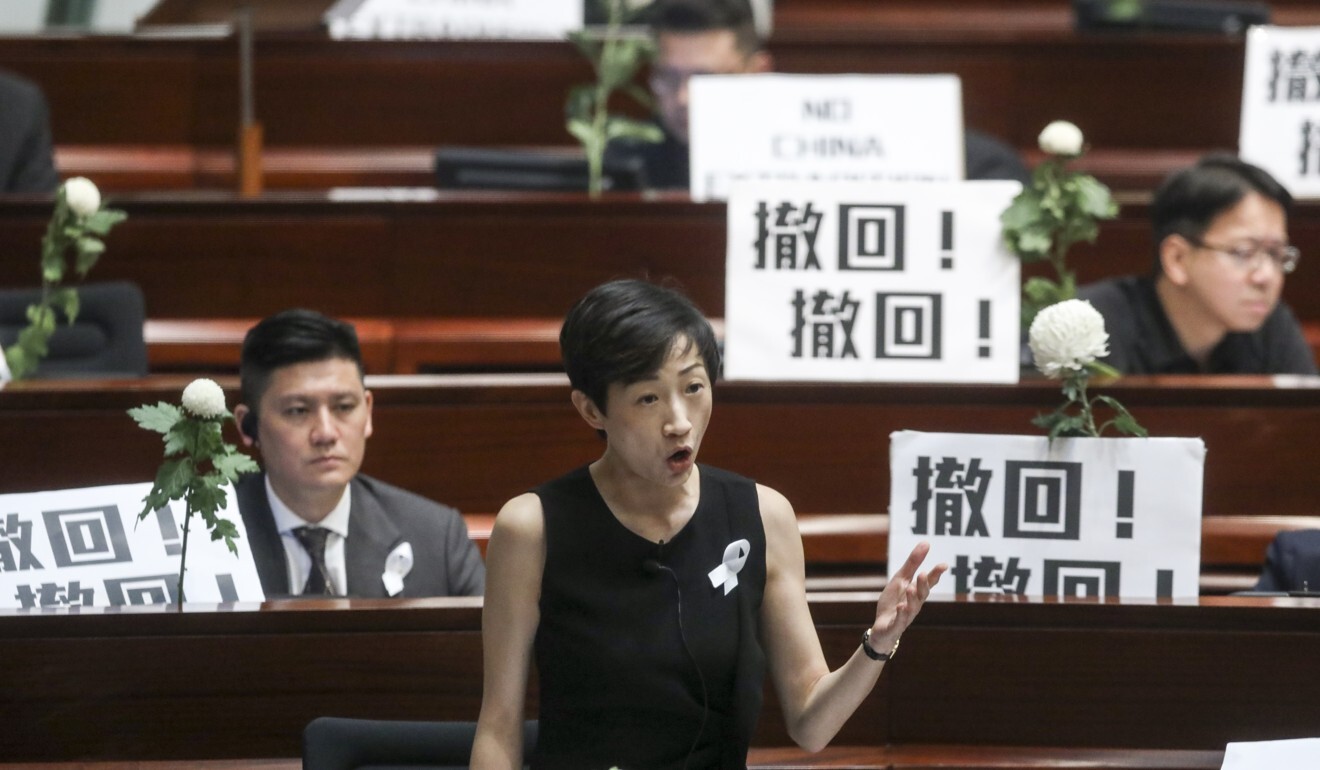
Suit up or ship out? Dress code change for Hong Kong lawmakers could ban sportswear, jeans from legislature
- Rules committee chairman Paul Tse says business attire norm could only apply to weekly council meetings on Wednesdays and Thursdays
- Changes likely in placard rules as well, as legislators may only be able to display banners while delivering speeches
Hong Kong lawmakers could be required to don business attire, and not sportswear or jeans, when they enter the Legislative Council chamber, with the pro-establishment camp set to push through another series of changes to the rule book.
As part of the latest changes to be scrutinised in Legco, legislators may only be able to display banners while delivering speeches. Placards, especially those that could undermine the dignity of the legislature, may no longer be placed at lawmakers’ desks in the chamber.
The proposed changes were revealed after Legco’s Committee on Rules of Procedure, which consists of 12 pro-establishment lawmakers, held a closed-door meeting on Thursday morning.
Committee chairman Paul Tse Wai-chun said all 43 lawmakers would be consulted about the proposals. A motion would then be tabled in Legco for lawmakers to vote and enact the rules, he added.
Lawmakers to be suspended for ‘grossly disorderly conduct’ under approved changes to rule book
“We want to specify that only business attire is appropriate in council meetings,” he said.
“The meaning of business attire is actually common sense. But to give lawmakers more guidelines, we will have a list of what’s unacceptable, such as sportswear, sport shoes and jeans.”
Tse said business attire for men could be defined as a suit jacket, a tie and trousers. He added the rules could only apply to weekly Legco meetings on Wednesdays and Thursdays, and not to the meetings of other panels or committees in the legislature. Tse said the president would warn lawmakers about their attire, and those who refused to comply could be banned from the meeting.

Tse said lawmakers were also consulted on ways to tighten the requirements for calling a quorum, a tactic the opposition frequently used to delay proceedings by forcing a headcount. No decision had been made on that issue yet, he added.
Under Article 42(a) of Legco’s rule book, all members must enter or leave the council “properly attired and with decorum” when a meeting is taking place.
In 1995, workers’ rights activists Leung Yiu-chung and “The Bull” Tsang Kin-shing were among the first lawmakers to vow not to wear a jacket and tie in Legco after they were elected.

Tsang eventually smartened up in response to a bet with then British governor Chris Patten, who offered him a tie and HK$500 if he turned up for a Legco meeting in a suit.
After opposition activist “Long Hair” Leung Kwok-hung was elected lawmaker in October 2004, he also courted controversy when he insisted on wearing his iconic Che Guevara T-shirts to sittings.
At the time, then Legco president Rita Fan Hsu Lai-tai ruled it was inappropriate to wear T-shirts or collarless clothes in meetings, but that regulation was abolished in November 2004.
In July 2017, Legco president Andrew Leung Kwan-yuen also asked Leung Kwok-hung to change his attire, after he entered the chamber in a pair of shorts. He was allowed to attend the meeting after he changed into a pair of jeans.

Tony Tse Wai-chuen of the architectural, surveying, planning and landscape sector agreed his colleagues should be required to wear a tie.
“I used to work for developers, and I wore a tie when I went to construction sites,” he said. “But when some parliamentarians from Japan and other countries visited Legco, they asked me if the council meeting was going on as some of my colleagues dressed so casually. I’ve seen some colleagues wearing sandals to meetings.”
But Federation of Trade Unions legislator Michael Luk Chung-hung hoped the rules would be flexible and allow “smart casual” attire as well.
“Is a suit jacket and a tie really needed? Even Paul Tse likes to wear those thin blazers in the summer, and even President Xi Jinping doesn’t wear a tie all the time,” Luk said.
Another issue the pro-establishment camp wanted to eliminate was the way placards had been used by their political rivals.
China’s top legislative body to weigh overhaul of Hong Kong political system
Some former pro-establishment lawmakers, such as Wong Kwok-hing, were also well-known for displaying props and placards when they spoke.
Paul Tse said rules could be laid down to define the acceptable ways of displaying placards during a meeting.
“It can only be done when lawmakers are making speeches, to help them to express their views. Placards can only be shown on the lawmakers’ desk, and has to be removed when they leave,” he said.
“We will also amend our house rules to ban placards that harm the dignity of the legislature, and those that would block other lawmakers’ or the president’s vision. We hope that will help to rebuild Legco’s public image.”

